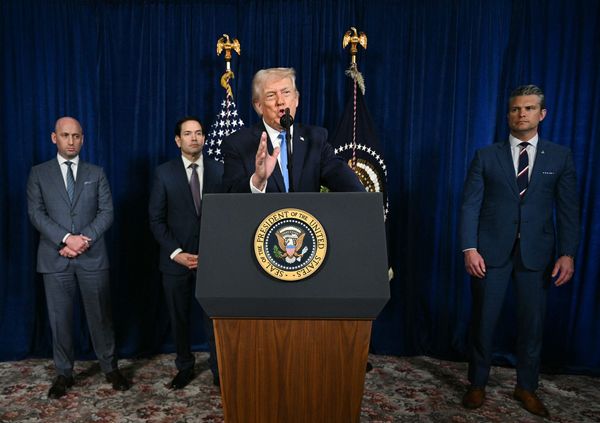
Howls. From the accused — I don’t just mean the men accused of acts of horrific racism while in positions of power at the Hawthorn Football Club, but the defenders of the institution of Australian football itself. Howls of outrage, that natural justice has been denied, that they’re being convicted without trial.
From Indigenous Australians, howls of a different kind. I won’t try to speak for them, but the ABC’s Tony Armstrong put it in a restrained and dignified way: “It is not easy being out here.”
I think I know what he means, although I don’t know what that’s like.
I read somewhere that “there has been a rush to judgment… the allegations should have remained completely confidential until they were properly investigated”.
Ah, the rule of law. Procedural fairness. The presumption of innocence. Our bulwarks against Salem.
Good men stand accused of bad things. This, the theory goes, should not be, not in public. Their right — to reputation and continuing employment — is the highest public interest of all. It can only be properly protected by due process, and due process can only occur behind closed doors.
Reminds me of another howl I heard, from an attorney-general accused of rape. If he was forced to resign, he said, we’d have no need of an attorney-general at all anymore, because there’d be no rule of law left to defend.
The basic principle of natural justice is that a person should not suffer detrimental consequences over an allegation unless that allegation has been put to them, they have had a fair opportunity to respond, and its adjudication is carried out in accordance with rules that obviate bias, irrelevance and caprice.
The principle does not dictate secrecy or silence.
More importantly, we need reminding again of what the rule of law actually is. What it is not is a guarantee of a presumption of anything, nor a protection of privilege.
The rule of law is, in fact, the opposite. It promises one thing only: equal treatment under the law. It guarantees no presumption, but makes one assumption: that the law is a level playing field. That it is colour-blind, gender-blind, everything-blind. That all of us who come to it will receive justice in identical measure and form.
Tell that to an Indigenous person. They will howl. With laughter, and with grief.
Where, after 234 years of colonisation and its consequences, are the cards stacked? With whom rests the incumbency of power, money and privilege? Who has to howl to be heard and, when they do, gets booed off the field and out of the game for doing so?
Tony Armstrong pointed to context: “10 days of wall-to-wall coverage of the queen … the ultimate symbol of colonisation”; spit hoods; Kumanjayi Walker; 517 deaths in custody. Just a tasting plate, really, of the indicia of racist disadvantage with which every Indigenous person lives in this country.
What this tells us, or would tell us if we shut up and listened, is that equality under the law in Australia does not exist. If it did, our prisons would not be full of Indigenous people, and they would not die a decade earlier than everyone else. They would not be dying in custody at an unchangingly steady rate, and it would not still be the case that no Australian law enforcement officer has ever been held legally responsible for a single one of these deaths.
The rule of law would say, if asked, that that is untenable. It would not say sorry, nothing I can do about that, the usual rules still apply. It would say that, if slavish adherence to so-called procedural fairness is part of the problem, then it’s time to change the rules.
In wartime, habeas corpus is sometimes suspended, because the law accepts that there are moments when needs must. That does not offend the rule of law.
I am not advocating that allegations in this context must be accepted without question or the rights of the accused be denied. I am saying that, when secrecy and due process have become part of the architecture of suppression of the ugly truth, then a different approach is warranted.
The truth is ugly. Our reckoning with it is overdue. If an institution like the AFL is serious about breaking with its own history of racism, then what happened this past week with Hawthorn, in full public glare, is exactly what’s required.
Otherwise, the howls will just continue — into the void.
Disclosure: Michael Bradley’s firm acted for Jo Dyer in litigation against former attorney-general Christian Porter in 2021-2022.
Do you think the former Hawthorn staff accused of racist acts have been denied natural justice? Or do we need to rethink what natural justice means? Let us know your thoughts by writing to letters@crikey.com.au. Please include your full name to be considered for publication. We reserve the right to edit for length and clarity.







